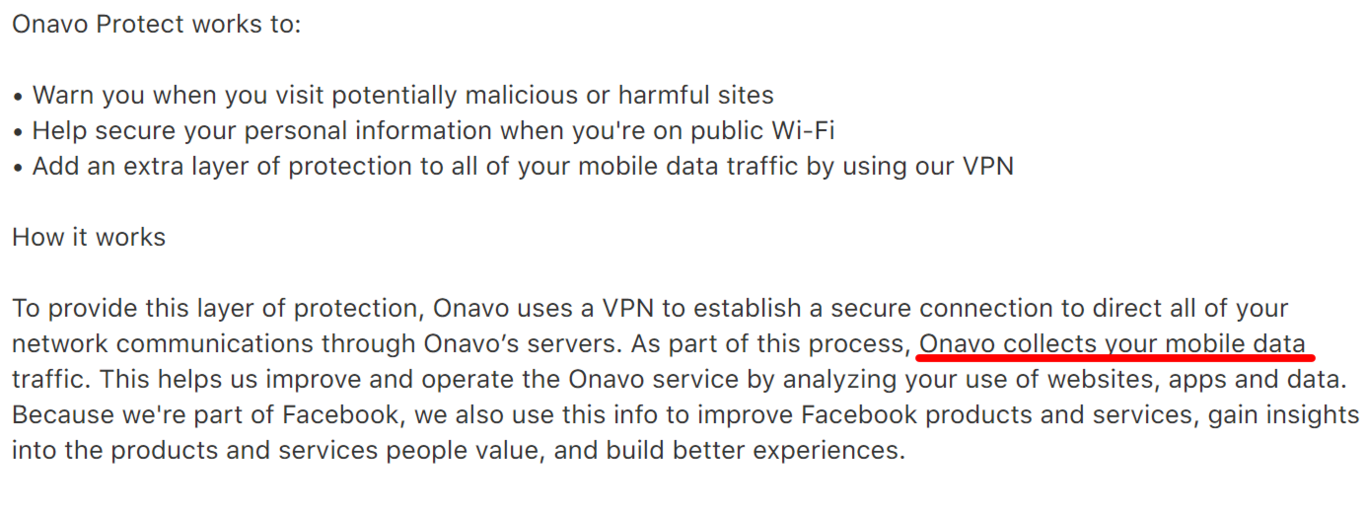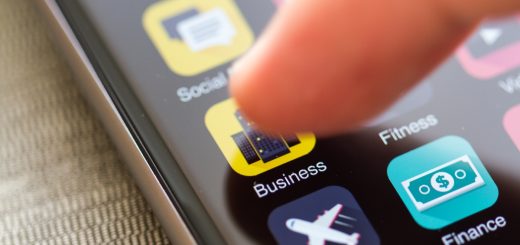Facebook suggests its own VPN so you can navigate safely while saving your browsing data
Facebook is trying to suggest that its users download a VPN with which to obtain their browsing data. This is Onavo Protect, an application that the social network bought in 2013, and that now have confirmed that they are beginning to suggest it to their users in the United States as an extra layer of security.
Facebook advertises the download of this app in its security section as a method to warn when you enter dangerous pages or protect your privacy in public WiFis. However, the problem is in the fine print, and it is in it they warn that, to carry out these tasks, “Onavo collects your mobile data traffic.”
Although the movement is very striking because it is Facebook, it is not the first time that doubts arise about the intentions of free VPNs. We already told you in his day told you about some of the problems that these services tend to cause, which in exchange for offering a layer of free protection usually compensate for the cost that this implies by showing you advertising or other more murky matters.
One of the most controversial examples is the HP VPN scandal, which they hunted by selling the bandwidth of their users to third parties and mounting botnets to carry out attacks using them. Today is still a service not recommended, but the fact that it is free makes it still quite popular.
At the moment, only in the United States
Facebook has confirmed that it is indeed trying to include a link to this service within its main application, although explaining that at the moment they are only doing it in the United States. It also explains that the test is only being carried out on iOS devices.
It is not the first time that Facebook tries to show Onavo in its application since it was purchased, so it is not clear if it is a timely test or if its idea is, as it has done in other occasions, to start implementing this function in a specific country and expand it little by little.
Continue Reading: Eight little-known Google applications that are very useful
In any of the cases, we will be attentive to see how the data is evolving and if Facebook takes more steps in this regard. If so, we would tell you right away.
Facebook and its relationship with VPNs
VPNs are usually used to encrypt users’ browsing data and prevent ISPs or the websites you visit from knowing where you are browsing. However, from the beginning, when Facebook bought Ovano in 2013 it did so with a very different intention, that of obtaining information on browsing habits of its users.
These data can become very important for companies like Zuckerberg, as they can give you clues about what other apps we use, how often and also demographic details. They also get information about the use we give to their own products and services, something that can help them improve them.
The problem here is that Facebook is not entirely clear, since the explanation on what will do with the data leaves it in the fine print. In fact, when advertising the app as a method of protection in its main application, there will be many users concerned about their security that end up installing it with blind trust, and without stopping to read all the information.
Another problem is that it has been previously discovered that Facebook used the data of users of this service in the past for their own analysis. This, according to the former CTO of the Federal Trade Commission of the United States at the time, was to use this data in ways that directly attack the interests of users, such as “preventing competitive innovation.”
The reasons for Facebook behind the movement
When last year it came to light that they had been using their users’ data, they said that Onavo makes it very clear how the information they collect is used, and that “both web pages and applications have been using market research services since years ago.”
However, on this occasion they want to sell the movement with a different objective. In the statement in which they comprised the inclusion of Onavo, he ensured that the data obtained were going to be used to help improve the service itself, thereby helping the users themselves, although again they fell back to others who also do the same.
“Like other VPNs, Onavo acts as a secure connection to protect people from potentially harmful sites,” they say from Facebook. “The application can collect its mobile data traffic to help us recognize the tactics that bad actors use, and over time, this helps the tool work better for you and for others, and we inform people about this activity and about other ways in which Onavo uses and analyzes the data before they are downloaded.”
With this, what Facebook promises is that the browsing data they obtain will be used to detect possible malicious pages and the techniques of those who want to take advantage of you on the network. But of course, being an official statement it is logical that they try to sell you only the positive part, so there are still doubts about how they will limit themselves to doing this.












